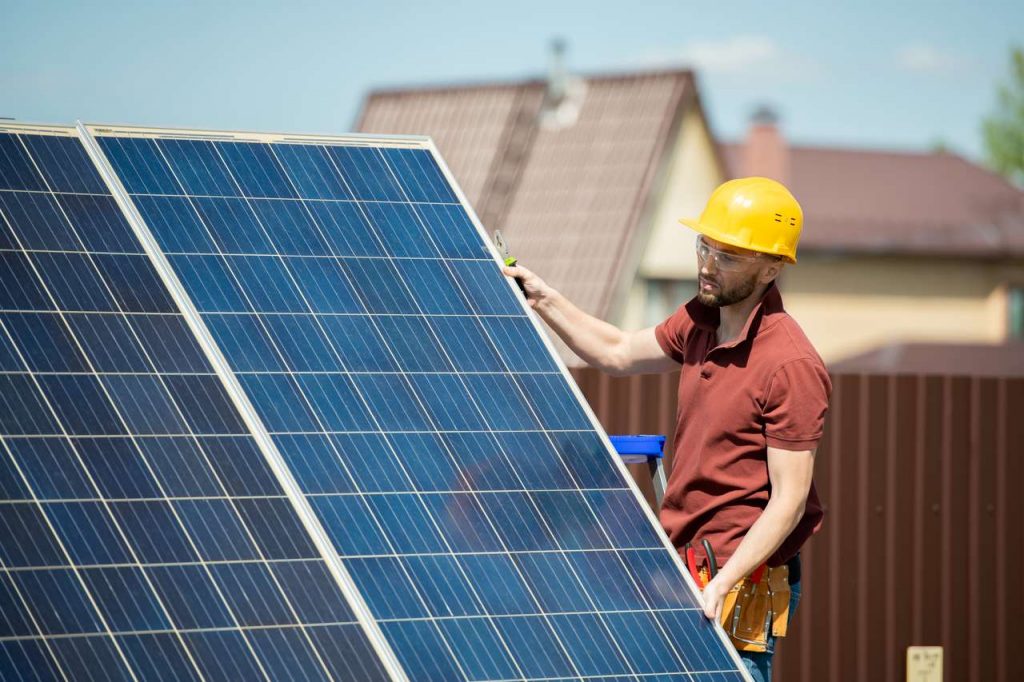The question on top of a lot of people’s minds when they are considering solar is whether they should pay cash, finance, or lease solar. I don’t find much rhyme or reason as to why certain owners ended up financing versus leasing a solar system. Often, they can’t remember. The result tends to be an unhappy customer when they find out, after the fact, they were talked into the wrong, expensive decision.
Owners I’ve talked with who purchased their systems outright are generally very happy campers. These also tend to be the most knowledgeable when it comes to solar. They have done their research. So let me help set the facts straight.
Acquiring a solar electric system may involve a cash purchase, financing arrangement, or lease terms. Cash purchase or financing is recommended when the owner can take advantage of the current 26% Federal (soon to be 30%!) and $1000 Arizona solar program tax credits. A lease or power purchase agreement (PPA) may be the best option when the property owner does not expect to owe enough annual income tax to earn the allowed credits over the five years allowed. Other recent changes in legislation have made a direct credit of 30% available to non-profits and government entities going solar, since they pay no taxes and would be ineligible for the credit.
Cash purchase by the property owner represents an investment in their own utility. Nice to be in control of your power future. The investment term, or life of the solar system, is 30+ years. Savings on the utility power bill each month represent a tax-free dividend earned on your investment. If you are generating and using electricity, you are earning a dividend. A low-risk and dependable investment return.
A well-designed and well-priced solar system, placed in an attractive location, will generate an average annual dividend of over 12%. Stated another way, for each $1 invested, the owner should save $3 in electric utility costs over the term. A decent place to put your money.
Consider your overall investment objectives to determine if the cash purchase of solar compliments your portfolio. Where the decision is not to invest cash to make the purchase, then financing or leasing a solar system are the other two alternatives.
The difference between good and fair financing or lease terms will likely make the decision for the property owner to proceed with solar or not. Attractive returns with a cash purchase are not guaranteed if that same system is financed or leased. “Why?”, you ask. Simply said, lending costs often eat up too much of those returns.
In Arizona, there are many options for financing. Loans are offered through solar companies with various terms and rates, often with an 18 month grace period to receive and reduce loan amount with refunded tax credits. Checking on loans offered by your existing banker or lender is a possibility. Using funds from an existing or new HELOC secured by your property can be a source. Finally, a new cash out refinancing of your mortgage can provide the funds. The term of a 30-year mortgage fits well with the expected life of a solar system, where long-term financing is sought.
The property owner can then compare the fees, terms and monthly payments of each solar financing option. Review the early payout or accelerated payment provisions. The answer could be to start with financing, working towards a cash purchase investment over time.
Financing with a term of twenty-five years or more should have monthly payments which result in savings of between 20 and 50% over the current cost of the utility power offset by solar. If this is not the case, and the property owner has financing proposals from three different sources, their could be other reasons. Perhaps the property owner’s credit score may not high enough to qualify for attractive terms. The solar system price might be too high, due to inferior location or excessive contractor profit.
Leasing solar, or entering into a PPA, passes on ownership of the system to a third party. This party is able to collect the solar tax credits where the property owner is unable. The lease is a fixed monthly payment and the PPA is a $/ kWh payment based on actual solar power generated. Stay away from either a lease or PPA with an escalation clause.
Before signing, a careful review of the lease or PPA agreement by the property owner is necessary to ensure understanding of the terms. Should the owner sell their property, the purchaser may request that the system be bought back from the third party leaseholder. It is important to understand the cost for the early buyout of these leases.
There will likely be a more limited number of lease or PPA choices offered through the solar company compared to the many financing options. An attractive lease or PPA would have a term of twenty years and flat payments which are less than the current cost of the utility power being offset by solar.
Engaging the professional services of a tax advisor, financial planner, loans officer, mortgage broker, and Realtor are advisable to make the best possible decision to purchase, finance or lease. The proper choice ensures the best results when acquiring a solar electric system for the owner’s property.
In the end, we all just want to be happy campers!







